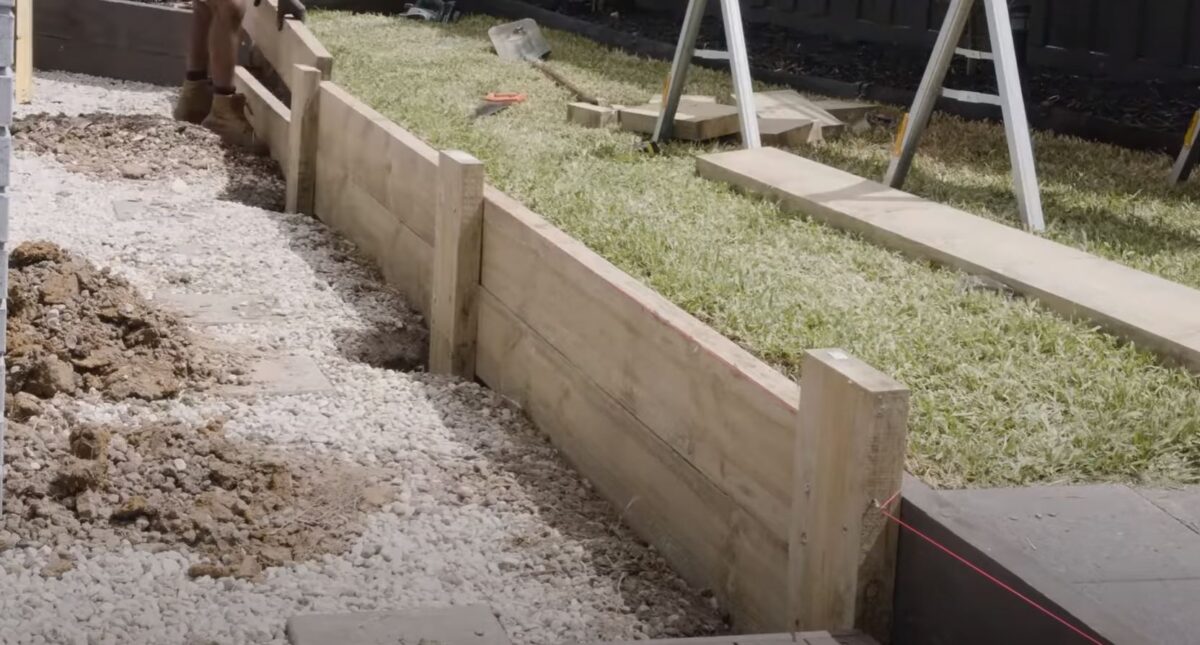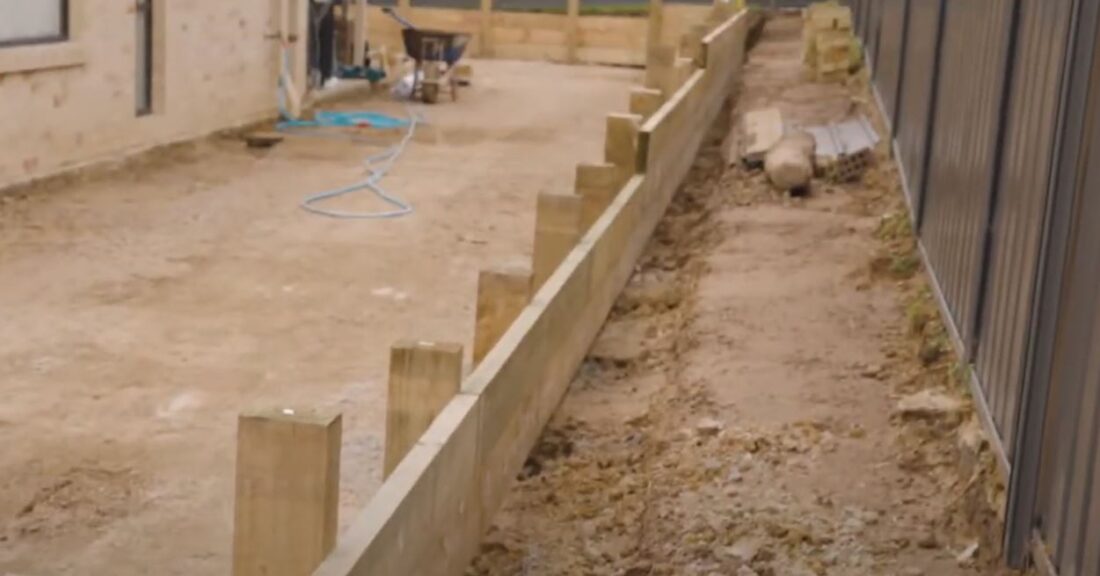The Lifespan of Retaining Walls in Auckland
Factors Influencing the Durability of Retaining Walls
When considering the construction of a retaining wall, especially in vibrant areas like Kingsland, it’s paramount to understand the factors that determine its longevity:
- Material Quality: A wall built with high-grade materials resists environmental wear and tear better.
- Proper Drainage: Ensuring that water doesn’t accumulate behind the wall can prevent premature failure.
- Skilled Installation: The craftsmanship with which the wall is built plays a pivotal role in its lifespan.
Materials and Their Expected Lifespans
Timber Walls:
A favourite for many homeowners, especially in picturesque places like Rothesay Bay, timber walls can last anywhere between 10 to 20 years depending on the wood type and its treatment against pests and rot.
Concrete and Stone Walls:
These sturdy walls can stand tall for over 50 years. With reinforced concrete and properly sealed stones, their lifespan can be even longer, making them an ideal choice for those seeking long-term solutions.
Brick Walls:
Offering both aesthetic appeal and durability, brick retaining walls can serve for 40 to 50 years with the right maintenance.
Gabion Walls:
Comprising of stacked stones encased in wire, these can last upwards of 40 years, provided the wire doesn’t corrode.
The Role of Maintenance in Longevity
Routine checks and maintenance can drastically increase a retaining wall’s life. From ensuring drainage paths are clear to repairing minor damages promptly, proactive care can prevent major mishaps.
Safety Considerations and Risks
A poorly built or maintained retaining wall poses risks. It can collapse, causing injuries or damage to adjacent structures. Especially in areas with heavy rainfall, walls without efficient drainage can become waterlogged, increasing the risk of failure.
Fencing Options to Pair with Retaining Walls
A retaining wall can be paired with various fencing options, enhancing both safety and aesthetics:
- Timber Fencing: Adds a rustic charm, especially complementing timber retaining walls.
- Steel Fencing: Durable and modern, it goes well with concrete or brick walls.
- Glass Fencing: For those not wanting to obscure views, glass fencing is an elegant choice.
Retaining Wall Lifespan: A Comparative Glance
| Material | Lifespan | Maintenance Required | Pros | Cons |
| Timber retaining walls | 10-20 years | Regular checks for rot and pests | Natural look, Cost-effective | Can rot or be infested |
| Concrete walls /Stone walls | 50+ years | Occasional sealing and cleaning | Durable, Versatile design options | Initial cost can be high |
| Brick | 40-50 years | Checks for mortar erosion | Aesthetic appeal | Mortar can erode over time |
| Gabion | 40+ years | Ensuring wire integrity | Excellent drainage, Unique look | Wire can corrode |
Why Engage Quality Fencing Auckland?
Building a retaining wall is an investment in the safety and beauty of your property. Quality Fencing Auckland ensures that this investment stands the test of time. With a blend of quality materials, skilled craftsmanship, and in-depth knowledge of Auckland’s unique landscapes, we are the top choice for those aiming for both durability and design.
In summary, while the material plays a significant role in a retaining wall’s longevity, factors like proper retaining wall installation, maintenance, and pairing with the right fence can make all the difference. By choosing reputable retaining wall builders, homeowners can enjoy the peace of mind that their retaining wall will remain robust and functional for years to come.
Understanding Retaining Walls: Frequently Asked Questions
How long can I expect my retaining wall to last? The lifespan of a retaining wall varies depending on the material used; timber walls typically last 10-20 years, while concrete or stone walls can stand for over 50 years with proper maintenance.
What is the primary purpose of a retaining wall? Retaining walls are primarily designed to hold back soil and prevent it from eroding, essentially helping in landscape management and ensuring structural safety.
Do retaining walls require a lot of maintenance?
Maintenance requirements vary with the type of material. For instance, timber walls need regular checks for rot and pests, whereas stone or concrete walls might require occasional sealing.
Is drainage essential for retaining walls?
Yes, proper drainage is crucial to prevent water accumulation behind the wall, which could lead to increased pressure and potential failure.
Can I install a fence on top of my retaining wall?
Certainly! Many homeowners choose to install fences atop retaining walls for added security, privacy, and aesthetic appeal.
How much does it cost to build a retaining wall in Auckland?
The cost varies depending on the material, design complexity, and labour rates. It’s best to get a quote from a reputable local provider like Quality Fencing Auckland.
Is council approval required to build a retaining wall?
In many cases, especially for taller walls or those near boundaries, council approval may be necessary. It’s always a good idea to check with the local council beforehand.
How can I identify signs of a failing retaining wall?
Look out for tilting, bulging, or cracks in the wall, as well as soil moving away from the base. These signs indicate potential problems.
Are there eco-friendly materials for retaining walls?
Yes, materials like rammed earth, recycled concrete, or certain types of treated timber offer eco-friendly options for retaining walls.
Can retaining walls be repaired, or do they need replacement?
Minor issues, like small cracks or slight tilting, can often be repaired. However, significant damage or structural problems might necessitate wall replacement.
Do retaining walls add value to a property?
Absolutely! A well-designed and maintained retaining wall can enhance the aesthetics and usability of a landscape, potentially increasing property value.
What types of plants or shrubs can I plant near my retaining wall?
Drought-tolerant plants, ground covers, and small shrubs are often ideal choices for retaining wall areas, ensuring minimal water accumulation and root intrusion.
Is it safe to build a retaining wall myself?
While smaller, garden-type walls can be DIY projects, larger or structurally significant walls should be entrusted to professionals to ensure safety and longevity.
Retaining Wall Insights: Key Takeaways
Lifespan varies by material
While timber walls typically last between 10-20 years, stone or concrete walls can endure for over half a century with proper upkeep.
Maintenance is material-dependent
Timber walls require vigilant checks for deterioration and pests, whereas concrete or stone walls might need periodic sealing.
Drainage is paramount
Adequate drainage is vital to prevent water build-up behind the wall, which could amplify pressure and potential wall failure.
Fences can complement retaining walls
Adding a fence on top of a retaining wall is a popular choice among homeowners for added aesthetics and functionality.
Council approval may be needed
For walls of a certain height or those close to property lines, checking with local council regulations is a prudent step.
Signs of wall failure are distinct
Manifestations like tilting, prominent cracks, or soil drifting from the base indicate looming issues.
Eco-friendly options are available
Materials such as rammed earth and recycled concrete present greener alternatives for constructing retaining walls.
Repairs vs Replacement
While minor damages can often be mended, significant structural issues might necessitate a complete wall overhaul.
Property value enhancement
Retaining walls, when well-executed, can augment the visual appeal and practicality of a space, thereby potentially boosting property value.
Plant selection is key
Opting for drought-resistant plants or small shrubs ensures minimal water retention and root intrusion near the wall.
Professional intervention is recommended for substantial walls
For retaining walls of significant size or structural importance, seeking professional expertise guarantees longevity and safety.


